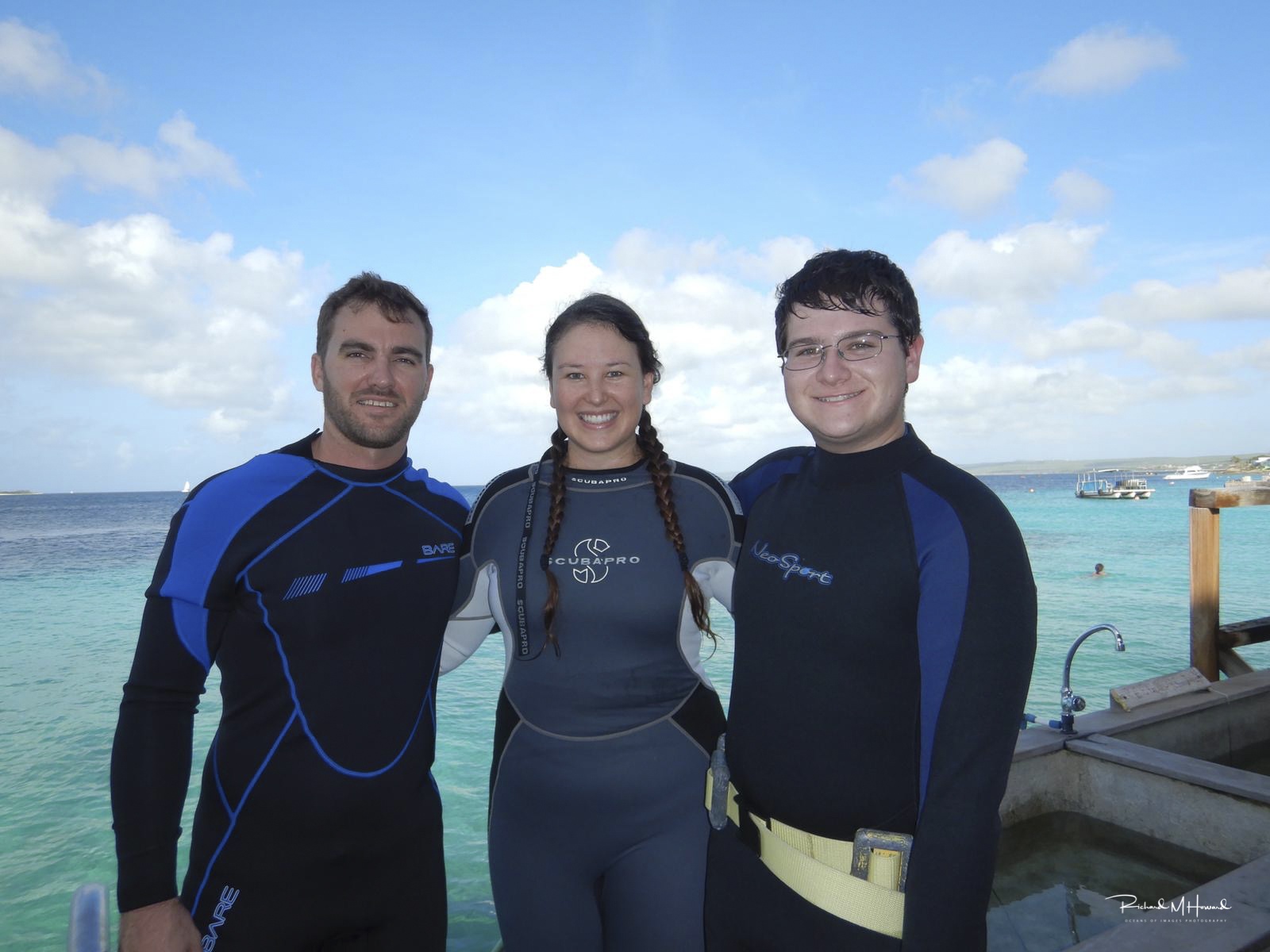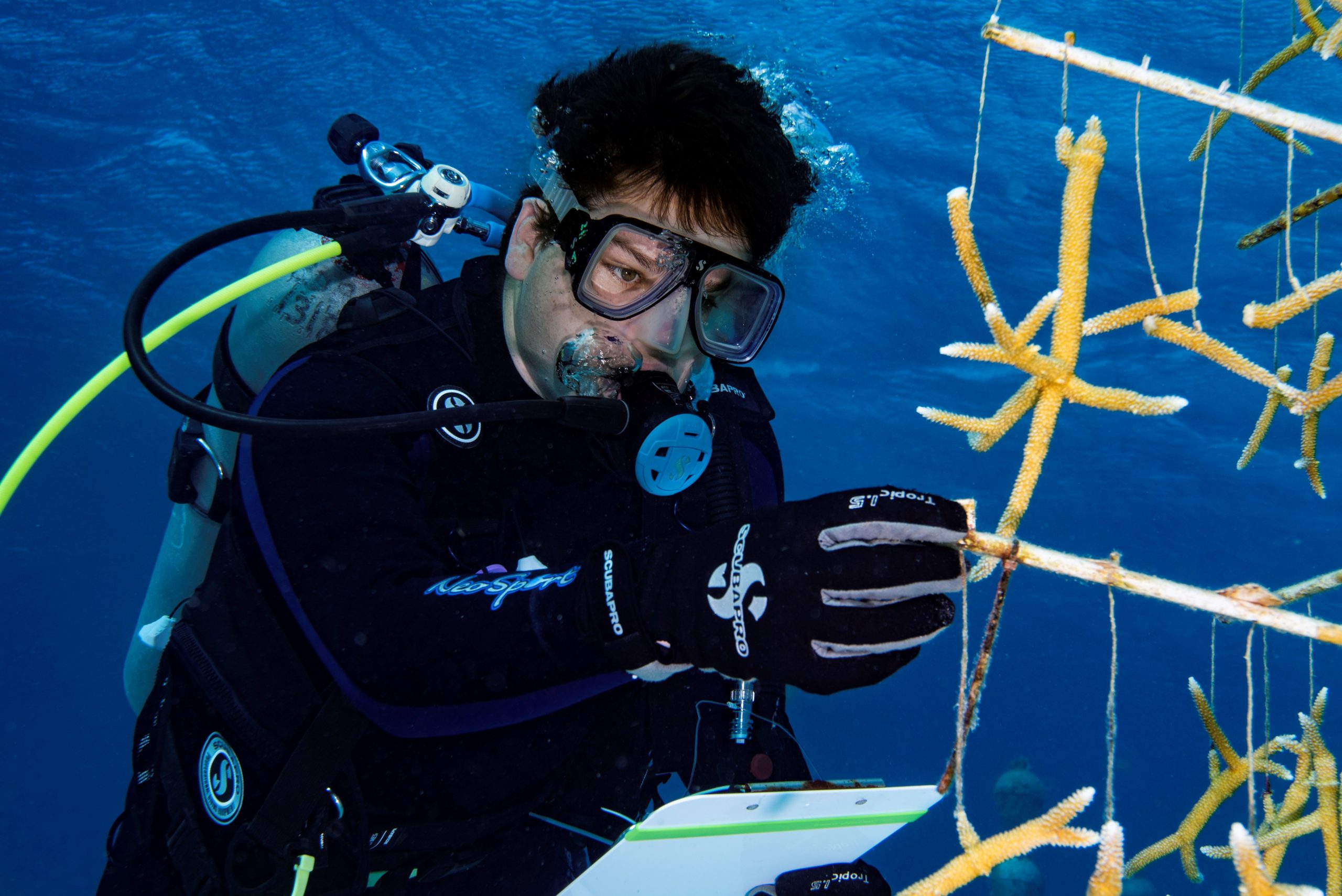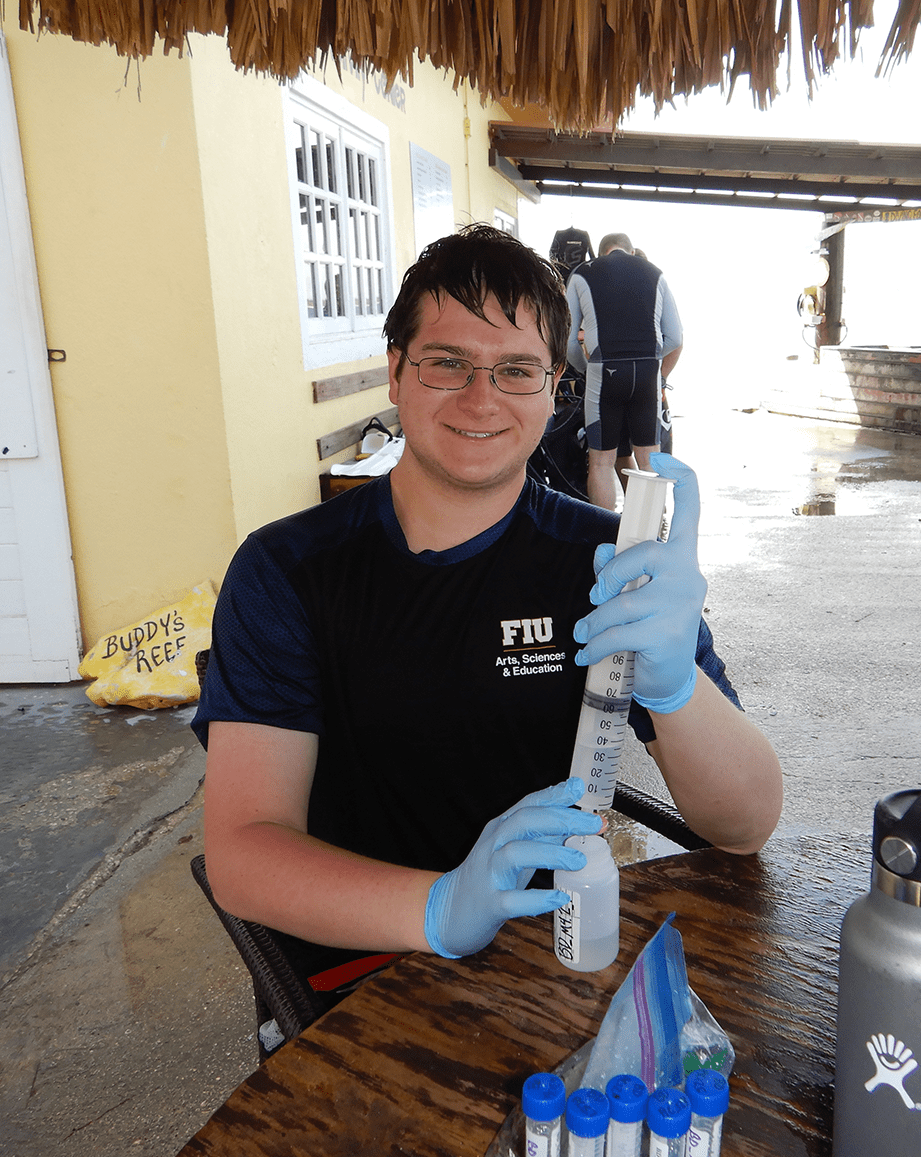One of the most challenging tasks of the trip was to photograph each coral fragment with a scale bar to measure growth rates. Caribbean Acropora corals can grow quite quickly and accurately photographing each of their branches while underwater can be tricky. However, Zach and Grant are both experienced divers and quickly got the hang of it.
The team also collected coral samples that will be used to characterize coral physiological performance metrics related to metabolism and symbiosis as well as epigenetic DNA methylation. At each site, data loggers were deployed to monitor temperature, salinity, and light, and water samples were collected for nutrient analysis. Back in the lab, Zach and Grant will also help with the physiological and epigenetic methods to analyze these samples.
As Serena’s marine science career began with an opportunity to join a field research expedition as an undergraduate student, she was very excited for the chance to bring two of our undergraduate lab members in the field. This trip was the first time that Zach and Grant had visited Bonaire and both were impressed by the beauty of Bonaire’s reefs and the island itself. The team was even able to fit in a night dive to watch the Ostracod spawning, a beautiful bioluminescent light show. Serena hopes to continue bringing undergraduate lab members on the future trips planned for this project.
This work has been made possible by support from Reef Renewal Foundation Bonaire, FIU CREST-CAChE, FIU Tropics, and the Judith Evans Parker Travel Scholarship.












